Meet the speakers
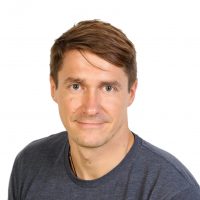
Theodore Alexandrov
Theodore Alexandrov is a team leader at the European Molecular Biology Laboratory (EMBL), the Europe’s leading life science laboratory.
Click to read more
He is also the head of the EMBL Metabolomics Core Facility and an Assistant Adjunct Professor at the Skaggs School of Pharmacy, University of California San Diego, USA. The Alexandrov team at EMBL aims to reveal the secrets of metabolism in time and space in tissues and single cells by developing experimental and computational methods. The team unites interdisciplinary scientists from biology, chemistry, and computer science as well as software engineers and data analysts. The developed computational methods are integrated into various open-source and industrial software packages. Since 2014, the team develops and provides for free the cloud software METASPACE for metabolite ID in imaging mass spectrometry, used by universities, governmental organizations, and pharma companies. Theodore Alexandrov is a grantee of an ERC Consolidator project focused on studying metabolism in single cells, as well as of various other European, national, NIH, and industrially-funded projects. He has co-founded and scientifically directed the company SCiLS and has over 80 journal publications and 6 patents in the field of spatial and single-cell -omics.
Rappez et al., T. Alexandrov, 2019

Quentin M. Anstee
Prof Quentin M. Anstee is Chair of Experimental Hepatology and Deputy-Dean of Research & Innovation in the Faculty of Medical Sciences, Newcastle University, UK.
Click to read more
A practicing clinician, he is also an Honorary Consultant Hepatologist in the Liver Transplant Unit at Newcastle’s Freeman Hospital, where he leads one of the largest Non-Alcoholic Fatty Liver Disease (NAFLD) clinical services in the U.K. He trained in medicine at University College London where he was awarded a First Class Honours degree and won First Prize in Medicine in the final MB BS examination.
Prof Anstee’s translational research has made major contributions across the pathophysiology, natural history, diagnosis and treatment of NAFLD. His work has provided key insights into temporal changes in steatohepatitis during disease evolution, identified genetic and epigenetic modifiers of liver disease progression and hepatocellular carcinoma risk, and has substantially advanced the field of biomarker development in liver disease. He coordinates two major international research consortia that are studying NAFLD pathogenesis and developing/validating accurate biomarkers to assist the diagnosis, risk-stratification and monitoring of patients with NAFLD: ‘EPoS’ Elucidating Pathways of Steatohepatitis (EU H2020 funded €6 million, 2015-2019) and ‘LITMUS’ Liver Investigation: Testing Marker Utility in Steatohepatitis (EU IMI2 funded €47.3 million, 2017-2022). He has established a pan-European NAFLD Registry and is the chief investigator of multiple ongoing clinical trials assessing new medical therapies for NAFLD. He is an Associate Editor of the Journal of Hepatology.
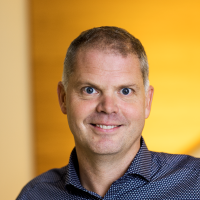
Fredrik Bäckhed
Professor Fredrik Bäckhed combines clinical oriented research with gnotobiotic mouse models to address the role of the normal gut microbiota in cardiometabolic diseases.
Click to read more
He holds a PhD from Karolinska Institutet, Sweden in 2002 and performed his postdoctoral training at Washington University, St Louis where he identified the gut microbiota as an environmental factor that regulates adiposity and obesity. Fredrik is professor at University of Gothenburg and is also appointed Professor at University of Copenhagen. He has been guest Professor at University of Oslo and recently did a sabbatical at University of Hawaii.
Fredrik has co-authored >150 papers in international peer-reviewed journals, many of which are in high- impact journals such as Nature, Science, Cell, and Proceedings of National Academy of Sciences. He has received several prestigious awards including Prince Daniel´s award for a young promising researcher, Göran Gustafsson’s Prize in Medicine, the Minkowski prize, and was awarded the gold medal from The Royal Swedish Academy of Engineering Sciences. Fredrik was elected to the Young Academy of Sweden (2011), The Royal Swedish Academy of Engineering Sciences, The Royal Swedish Academy of Sciences, and received an ERC consolidator award (2013). He was recently appointed Torsten Söderberg Professor in Medicine and Wallenberg Scholar.
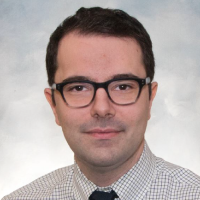
Julius Chapiro
Originally from Berlin, Germany, Dr. Chapiro is Assistant Professor of Radiology and Biomedical Imaging and Co-Director of the Interventional Oncology Research Laboratory at the Department of Radiology and Biomedical Imaging at the Yale University School of Medicine in New Haven, Connecticut, USA.
Click to read more
His research focuses on developing new quantitative imaging biomarkers for the diagnosis, characterization, and therapeutic management of liver cancer. His translational research portfolio includes the development of novel embolic agents as well as the application of artificial intelligence solutions for the management of liver cancer. His basic research interest mainly focuses on developing new tools to characterize the tumor microenvironment and the immune system in the setting of loco-regional, image-guided therapies of liver cancer
Creating innovative and clinically applicable imaging solutions for liver cancer with advanced molecular imaging, image post-processing and machine learning approaches and translating them to clinical practice has been his central mission for the past decade. He authored and co-authored >100 original research articles, numerous reviews and book chapters and gave more than 70 talks and invited lectures within the last five years. His research has also resulted in several filed patent applications, 510(k)-approved medical products and significant grant support from federal, foundational and industry sources. He is an active research mentor to more than 30 undergraduate, medical and graduate students as well as peers both at Yale and other national and international institutions. Being an active contributor, journal-, abstract- and grant reviewer in several professional societies (RSNA, SIR and SIO), he is also committed to education and the mission of disseminating research data and scientific knowledge. Dr. Chapiro is an Associate Editor of the journal Radiology: Artificial Intelligence and Consultant to the Editor of the Journal of Hepatology. Dr. Chapiro is a member of the American College of Radiology Liver Imaging Reporting and Data System (LI-RADS) Steering Committee, he additionally serves on the Society of Interventional Oncology Research Committee and is the Chair of the Annual Meeting Program Planning Committee for the Subspecialty of Interventional Radiology at the annual Radiological Society of North America meeting.
Abajian et al., J. Chapiro, 2018
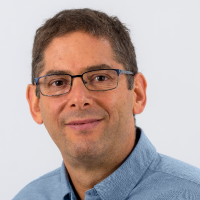
Eran Elinav
Prof. Eran Elinav, M.D., Ph.D. is a professor at the Department of Immunology, Weizmann Institute of Science, and since 2019 the director of the cancer-microbiome division, at the Deutsches Krebsforschungszentrum (DKFZ), Heidelberg, Germany.
Click to read more
His labs at the Weizmann Institute and DKFZ focus on deciphering the molecular basis of host-microbiome interactions and their effects on health and disease, with a goal of personalizing medicine and nutrition. Dr. Elinav completed his medical doctor’s (MD) degree at the Hebrew University of Jerusalem Hadassah Medical Center summa cum laude, followed by a clinical internship, residency in internal medicine, and a physician-scientist position at the Tel Aviv Medical Center Gastroenterology institute. He received a PhD in immunology from the Weizmann Institute of Science, followed by a postdoctoral fellowship at Yale University School of Medicine. Dr. Elinav has published more than 150 publications in leading peer-reviewed journals, including major recent discoveries related to the effects of host genetics, innate immune function and environmental factors, such as dietary composition and timing, on the intestinal microbiome and its propensity to drive multi-factorial disease. His honors include multiple awards for academic excellence including the Claire and Emmanuel G. Rosenblatt award from the American Physicians for Medicine (2011), the Alon Foundation award (2012), the Rappaport prize for biomedical research (2015) the Levinson award for basic science research (2016), and the Landau prize (2018). Since 2016 he is a senior fellow at the Canadian Institute For Advanced Research (CIFAR), since 2017 he is an elected member, European Molecular Biology Organization (EMBO) and an international scholar at the Howard Hughes Medical Institute (HHMI) and the Bill & Melinda Gates Foundation.
Kolodziejczyk et al., E. Elinav, 2020
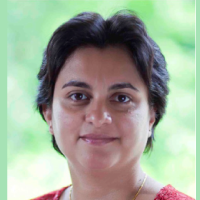
Muzlifah Haniffa
Muzlifah Haniffa is a Wellcome Trust Senior Research Fellow, Lister Institute Research Fellow and Consultant Dermatologist based in Newcastle University.
Click to read more
She graduated from medical school in Cardiff, trained as a junior doctor in Cambridge and received her dermatology specialist training in Newcastle. She was awarded an Action Medical Research Training Fellowship and a Wellcome Trust Clinical Intermediate Fellowship.
Muzlifah is a Fellow of the Academy of Medical Sciences (2020) and the recipient of the Academy of Medical Sciences Foulkes Foundation Medal (2019) and the European Federation of Immunological Societies ACTERIA Prize in Immunology and Allergology (2018). She is a leading member of the Human Cell Atlas initiative and pioneered the application of single cell genomics to decode the developing human immune system, and the human skin in health and disease. She is passionate about mentoring and diversity in science.
D.M. Popescu et al., M. Haniffa, 2019
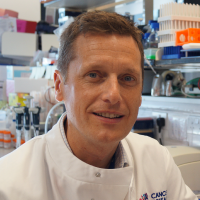
Matthew Hoare
Dr. Matt Hoare is a Lecturer at the University of Cambridge, based at the CRUK Cambridge Institute and hepatologist at Addenbrooke’s Hospital in Cambridge.
Click to read more
He currently leads the East of England service for hepatocellular carcinoma (HCC), seeing patients from across the region and contributing to numerous observational and interventional clinical trials in HCC.
His research interests centre around the diseased liver microenvironment and why this drives carcinogenesis. He completed his PhD at Cambridge on lymphocyte senescence in chronic hepatitis C, before moving to the CRUK Cambridge Institute to work on oncogene-induced senescence (OIS). This work sought to understand the regulation of the senescence secretome and its effects in chronic inflammatory cancer-prone human tissues, such as the liver. More recently he has been working on the genomic basis of the cancerization field effect in cirrhosis.
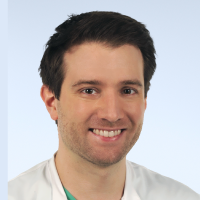
Jakob Kather
Jakob (ORCID) is a physician/scientist and assistant professor at RWTH Aachen University (Germany) with additional affiliations at the NCT Heidelberg (Germany) and the University of Leeds (UK).
Click to read more
His research is focused on applications of artificial intelligence (AI) in cancer, in particular on predictive biomarkers for targeted treatment and immunotherapy. His clinical duties include Gastrointestinal Oncology, Gastroenterology and Medical Intensive Care. Recent publications are listed on Google Scholar and Pubmed. Jakob routinely reviews articles for scienctific, medical and technical journals (Publons).
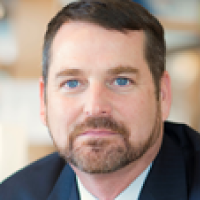
Gary W. Miller
Dr. Miller serves as Vice Dean for Research Strategy and Innovation and Professor of Environmental Health Sciences at the Columbia University Mailman School of Public Health.
Click to read more
He is an international leader on the exposome, the environmental analogue to the genome. Dr. Miller founded the first exposome center in the U.S. and wrote the first book on the topic. He has helped develop high-resolution mass spectrometry methods to provide an omic-scale analysis of the human exposome. He serves as Co-Director of Columbia’s Irving Institute Precision Medicine Resource, which supports integration of environmental measures into clinical and translational research projects. Dr. Miller is the founding editor of the new journal Exposome, published by Oxford University Press.
Vermeulen et al., G.W. Miller, 2020
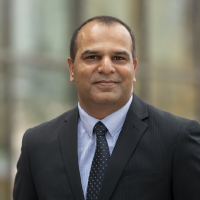
Fayyaz Minhas
Dr. Minhas is an assistant professor at Warwick Department of Computer Science.
Click to read more
He is also affiliated with the Tissue Image Analytics (TIA) centre and the Pathology image data Lake for Analytics, Knowledge and Education (PathLAKE) consortium. He is a recipient of the Fulbright scholarship and works on solving problems in biology and medicine using machine learning methods as well as the development of bespoke machine learning algorithms in the domains of biomedical informatics and data science. Specifically, he is interested in designing machine learning models for integrating digital pathology and bioinformatics data for improved diagnosis and personalized treatment of cancer.
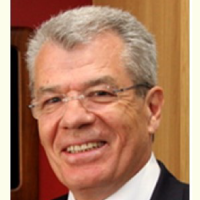
Nikolai V. Naoumov
Nikolai Naoumov is a physician-scientist with a professional career spanning academia, clinical care and drug development – all focused on liver diseases.
Click to read more
He is Fellow of both the Royal College of Physicians (London) and the Royal College of Pathologists (UK). Prof. Naoumov graduated from the Medical Academy in Sofia, Bulgaria with distinction. He was awarded three Wellcome Trust Fellowships and undertook further postgraduate training at the Liver Unit, King’s College Hospital in London. His research has integrated immunology, molecular biology and translational medicine in elucidating virus-host interactions and mechanisms of liver injury. He led research teams at the Medical Academy Sofia, King’s College Institute of Liver Studies in London and subsequently as Professor of Hepatology at University College London. In his research and as clinical hepatologist he has mentored a number of clinical fellows and PhD students from around the world. Since 2007, Prof. Naoumov expanded his contributions to medical science and clinical hepatology as senior executive at Novartis Global Drug Development in Basel, Switzerland. As Global Head, Therapeutic area Hepatology and Transplantation at Novartis he championed innovation, novel therapies and multiple industry-academia collaborations globally. In parallel, he continued contributing to liver research and education as an Honorary Professor of Hepatology at UCL, Scientific Advisor to the Foundation for Liver Research in the UK and a Board member of the Liver Foundation in Switzerland. He is also a Fellow of the AASLD and a Fellow of the Association of Physicians of Great Britain and Northern Ireland. Prof. Naoumov has been associated with EASL since 1983 with his first presentation on T-cell cytotoxicity in chronic hepatitis B. Since then he has consistently contributed to EASL with research presentations and as an invited speaker at EASL meetings. He served as a member of the EASL Scientific Committee (1991-94), and organised the EASL Monothematic conference on Liver Immunology (London, 2006). He was an Associate Editor for Journal of Hepatology and Editor for Liver for the European Journal of Clinical Investigation.
GKK. Lau et al., NV. Naoumov, 2002
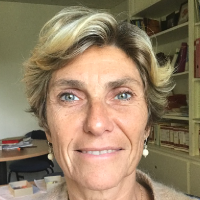
Valérie Paradis
Valérie Paradis, MD PhD and Professor in Pathology, is the chairman of Pathology department (Beaujon hopsital) and leader of the INSERM team “From inflammation to neoplasia in digestive diseases” (INSERM UMR 1149 Paris).
Click to read more
Fields of interest and research include pathological and molecular aspects of liver fibrosis, vascular diseases, and tumorigenesis with a specific interest in tumor heterogeneity. To address this later issue, her team has developed original in situ proteomic approach (MALDI imaging) for identification of tissue signatures and biomarkers, and ex vivo culture model using thin tumor slices and organoids for evaluation of drug therapy.
Paradis is chairing the specialty “Epithelium: interface structure” (Master 2 “Cellular Biology-Physiology-Pathology”). She is co-coordinator of the DHU UNITY “Unmet Needs for Innovation in HepaTology and GastroenterlogY” and task leader of the RHU QUID-NASH aiming to identify non-invasive diagnostic markers of NASH in diabetic patients. She is coordinating a collaborative FHU project MOSAIC aiming to identify imaging signatures through integration of radiological and histological features and Artificial intelligence. She is a member of International groups of liver pathologists (Laennec & Elves), Scientific commissions Research Institutes (INSERM, ANRS), Associate Editor (J Hepatol and WHO Classification of Digestive tumors 2019).
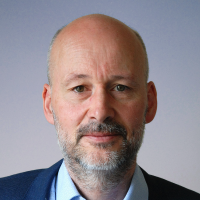
Robert Schwabe
Dr. Robert Schwabe is a Professor in the Department of Medicine and in the Institute of Human Nutrition at Columbia University, and the Director of the Columbia University Digestive and Liver Disease Research Center.
Click to read more
Dr. Schwabe received his MD as well as a doctoral degree in Immunology from Ludwig-Maximilians-University in Munich, Germany. His laboratory is dedicated to studying consequences of liver injury including inflammation, fibrosis and cancer and is currently employ novel bioinformatic tools to understand key drivers of fibrosis and liver cancer. Dr. Schwabe’s lab has shown key roles of the hepatic stellate cells in liver fibrosis development and liver cancer promotion as well as role of Toll-like receptors and the gut microbiota in liver fibrosis and liver cancer development. Dr. Schwabe has authored 125 publications, including senior author papers in Nature Medicine, Cancer Cell, Cell Metabolism and the Journal of Clinical Investigation. Dr. Schwabe hold several grants from the NIDDK/NIH and NCI/NIH, and is a past recipient of grants from the American Liver Foundation, a Research Scholar Award from the American Gastroenterological Association and postdoctoral fellowships from the American Liver Foundation and the German Academic Exchange Service. Dr. Schwabe is currently an Editor for Journal of Hepatology Reports, a past Associate Editor of Gastroenterology, and Journal of Hepatology, and a former member of the Hepatobiliary Pathophysiology study section of the NIH.
Affo et al., R.F. Schwabe, 2021
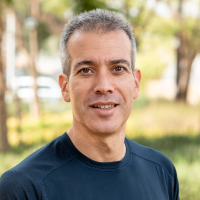
Eran Segal
Eran Segal is a Professor at the Department of Computer Science and Applied Mathematics at the Weizmann Institute of Science, heading a lab with a multi-disciplinary team of computational biologists and experimental scientists in the area of Computational and Systems biology.
Click to read more
His group has extensive experience in machine learning, computational biology, probabilistic models, and analysis of heterogeneous high-throughput genomic data. His research focuses on Microbiome, Nutrition, Genetics, and their effect on health and disease. His aim is to develop personalized nutrition and personalized medicine.
Prof. Segal published over 140 publications, and received several awards and honors for his work, including the Overton prize, awarded annually by the International Society for Bioinformatics (ICSB) to one scientist for outstanding accomplishments in computational biology, and the Michael Bruno award. He was recently elected as an EMBO member and as a member of the young Israeli academy of science.
Before joining the Weizmann Institute, Prof. Segal held an independent research position at Rockefeller University, New York.
Prof. Segal was awarded a B.Sc. in Computer Science summa cum laude in 1998, from Tel-Aviv University, and a Ph.D. in Computer Science and Genetics in 2004, from Stanford University. Lab website: http://genie.weizmann.ac.il
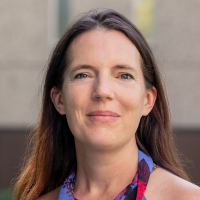
Molly M Stevens
Prof Molly M Stevens FREng FRS is Professor of Biomedical Materials and Regenerative Medicine and the Research Director for Biomedical Material Sciences in the Department of Materials, in the Department of Bioengineering and the Institute of Biomedical Engineering at Imperial College London.
Click to read more
Prof Stevens’ multidisciplinary research balances the investigation of fundamental science with the development of technology to address some of the major healthcare challenges. Her work has been instrumental in elucidating the bio-material interfaces. She has created a broad portfolio of designer biomaterials for applications in disease diagnostics and regenerative medicine. Her substantial body of work influences research groups around the world with over 30 major awards for the groups research and Clarivate Analytics Highly Cited Researcher in Cross-Field research.
Prof. Stevens holds numerous leadership positions including Director of the UK Regenerative Medicine Platform “Smart Acellular Materials” Hub, Deputy Director of the EPSRC IRC in Early-Warning Sensing Systems for Infectious Diseases and President of the Royal Society of Chemistry Division of Materials Chemistry.
S.W. Crowder et al., M.M. Stevens, 2016
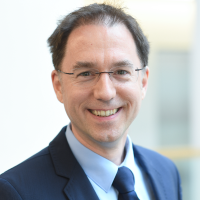
Frank Tacke
He was educated at the medical school in Hannover, Germany, and has received training at the University of Texas (1998-1999: New gene therapy strategies), and as a post-doctoral research training at the Mount Sinai Medical Centre, NY, (2004-2006: Monocyte/macrophage and dendritic cell biology).
Click to read more
2006-2019 he has been a clinical physician and research laboratory leader at the University Hospital Aachen, Germany. He is board-certified in Internal Medicine, Gastroenterology, Endocrinology and Diabetology, Critical Care Medicine and Infectious Diseases. He has (co)authored >500 peer-reviewed original and review articles, and he is listed as a “Highly Cited Researcher 2020” in the area “cross-field”. He has served on the Governing Board of the EASL (2014-2018) and is currently Co-Editor at the J Hepatol. Professor Tacke has been appointed in 2019 as the Head of Hepatology and Gastroenterology at the Charité – Universitätsmedizin Berlin, one of Europe’s largest university hospitals and renowned for excellence in medicine.

